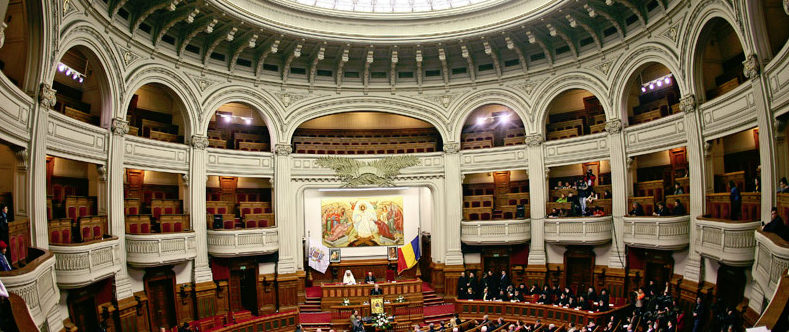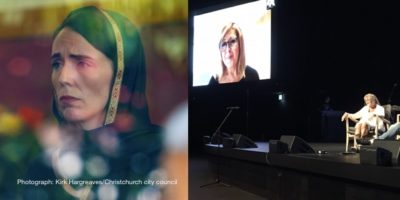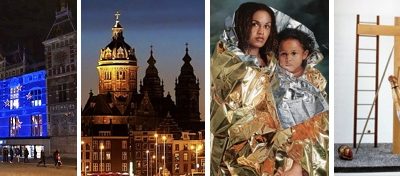Have you ever visited Romania?
If not, let me warmly invite you to Bucharest this May 9 & 10, to participate in the State of Europe Forum. Every western European should sometime make the effort to visit eastern European countries to better understand our fellow Europeans.
If so, then of course you will want to renew contact with the vivacious Romanians, a Latin island in a slavic sea! And flights can be surprisingly low-priced from various places in Europe; hotels, taxis and restaurants also cost much less than in the west.
Since Romania holds the EU presidency for the first half of this year, we will hold the State of Europe Forum in Bucharest as we have done in seven other European capitals since 2011. And what shall we say about the state ‘Europe’ is in? Few would be positive. The Dutch provincial elections last week revealed a disturbing degree of provincialism and xenophobia–the leader of the winning party dedicated his university dissertation to the French extreme-nationalist Jean Marie Le Pen!! That bodes poorly for the upcoming European elections.
God’s people of hope need to point in a different direction. We need recover the story of Jesus as having ‘broken down every wall’ between race, gender and status; as the defining story of Europe, still evident in countless cultural, political and social ways; as the story that gave western history a sense of direction and purpose; as the story that gave humans a distinct identity as image-of-God carriers; as the story that defined good and evil, right and wrong, truth and justice, dignity and significance. We need to remind ourselves that this is the story that wins in history!
Public truth
Too often, intimidated by secularism, we have adopted a minority complex, consenting to keep our faith a private matter. In fact, the gospel is very public truth, as Tom Wright says, for example, in his book about Christianity and power, ‘God in Public’. Why must the church remind those in authority of their responsibilities? he asks. What can Christians do to act as the voice of the voiceless? How can speaking of God in public help to create new structures of international justice and peace?
These are the kind of questions the forum aims to apply in our European context. It attempts to transform the minority complex into a ‘creative minority complex’, based on Paul’s perspective as expressed in Ephesians 1 and 2, in The Message’s translation:
God raised (Christ) from death and set him on a throne in deep heaven, in charge of running the universe, everything from galaxies to governments, no name and no power exempt from his rule. And not just for the time being, but forever. He is in charge of it all, has the final word on everything. At the center of all this, Christ rules the church. The church, you see, is not peripheral to the world; the world is peripheral to the church.
This story has taken different trajectories in east and west, especially since the Great Schism of 1054, when the Eastern and Western Churches broke relations for some nine centuries! On the surface it was an argument about the Holy Spirit. Behind the scenes it was a power struggle. This schism has left a deep spiritual scar on Europe’s landscape. Only in recent times has relationship begun to be restored.
Commonalities and differences
Just days ago, we were offered the use of the magnificient Patriarchal Palace for the public opening event of the forum (see photo). This generous gesture is a measure of the open relationship developing for further relationship, dialogue and search of mutual understanding.
The forum will bring Pentecostal, Evangelical, Protestant, Catholic and Orthodox clergy and lay people together to explore commonalities and differences in perspectives on the future of Europe. If we all can accept that the Jesus story is the defining story of Europe, how do we bring his lordship, as Paul articulates above, to bear on our current challenges: of populism, terrorism, corruption, cyberwarfare, nationalism, trafficking, migration, weakened democracy, xenophobia and much more?
Contributors include Professor Wolfgang Palaver, of the Catholic Institute in Innsbruck; Teodor Baconschi, former Romanian ambassador to the Vatican, France and Portugal, and former Minister of Foreign Affairs; Professor Evert van de Poll of the Evangelical Theological Faculty, Leuven; Msgr Piotr Mazurkiewicz of the Cardinal Stefan Wyszynski Unversity in Warsaw; Professor Cornelui Constantineanu, University of Arad; Florica Cherecheș, member of the Romanian Parliament; Pr Ionuţ Mavrichi, Orthodox theologian; and other current and former cabinet ministers, economists and leaders of church denominations and NGO’s.
Registration is now open here. You will be able to read more about the event as it gets posted here.
Will you take us up on our invitation?
Till next week,



